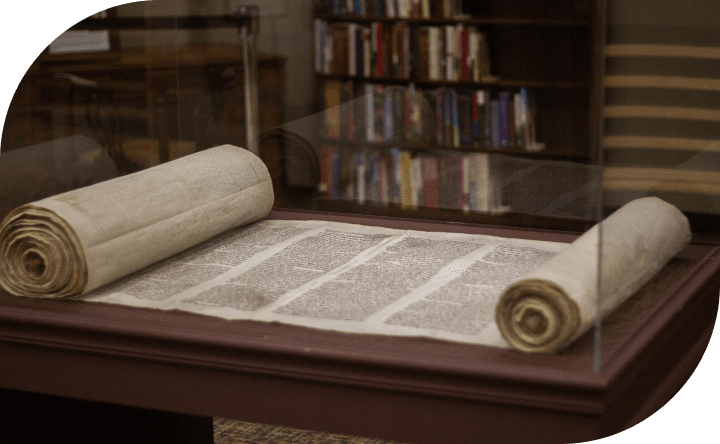Parashat Shoftim
12 September 2024
Once, Rabbi Zholty, the chief rabbi of Jerusalem, wanted to establish a בית דין with truly esteemed דיינים, as it says in Parashat Yitro: "אנשי חיל, יראי אלוקים, אנשי אמת, שונאי בצע." A friend approached him and said, "אנשי חיל, יראי אלוקים,." , might be relatively easy. But finding those who hate gain ""אנשי בצע, that will be much more difficult, Rabbi Zholty replied, , "If we pay enough, we can also find those who hate gain."
It is written in this week's Parasha: "לא תיקח שוחד כי השוחד יעוור עיני חכמים ויסלף דברי צדיקים." This teaches us that it is forbidden to give money or gifts to a judge before the trial, as even a wise and righteous person, as the Torah testifies, can be blinded by money. The Torah warns that money has the power to cloud judgment.
The Gemara in מסכת כתובות asks why the bribe is called "שוחד." The answer is from the phrase "שהוא חד." רש"י explains that the giver and receiver of the bribe become like one, sharing a common desire that the judgment will favor the giver. Therefore, the judge is effectively ruling on his own case. However, the "כלי יקר" disagrees with this explanation, questioning why the bribe itself is called "שוחד" when it should seemingly be the judge who is named so. The "כלי יקר" explains that "הוא חד" refers to being like a knife—sharp and cutting. Just as a knife cuts, so too does the money given to a judge cut through justice, allowing only the influence of the bribe to prevail. This is the power of money when not wielded properly.
The 'מאירי' at the beginning of מסכת קידושין asks: " האשה נקנית בכסף, שטר וביאה," and why does it begin with money? The Meiri explains because money is 'ראש המדברים בכל מקום,''the foremost speaker in all matters, and it is always the most dominant. Money holds great power that must be understood and used wisely.
The "כלי יקר" continues, explaining that one who perverts justice brings a sharp sword into the world, and that is the bribe, sharp like a sword, that distorts judgment.
It seems that the opposite of a bribe, on the positive side, is charity, as it is said, "צדקה תציל ממות." The power of money, when used to help others and do good, can save lives. The following פסוק says, "צדק צדק תרדוף." 'צדק וצדקה' come from the same root.
פעם אחת הרב ז'ולטי, רבה של ירושלים, רצה להקים בית דין עם דיינים חשובים, כפי שנאמר בפרשת יתרו: "אנשי חיל, יראי אלוקים, אנשי אמת, שונאי בצע". פנה אליו חבר ואמר: "אנשי חיל, יראי אלוקים, אנשי אמת — יהיה יחסית קל למצוא. אבל אנשים שהם שונאי בצע, זה כבר יותר קשה". ענה לו הרב: "אם נשלם מספיק, נוכל גם למצוא אנשים ששונאי בצע".
בפרשת השבוע נאמר: "לא תיקח שוחד כי השוחד יעוור עיני חכמים ויסלף דברי צדיקים". כלומר, אסור לתת כסף או מתנות לשופט לפני הדיון, כי השוחד יעוור גם אדם שהתורה מעידה עליו שהוא חכם וצדיק. התורה מזהירה שכסף עלול לעוור את עיני החכמים.
הגמרא במסכת כתובות שואלת מדוע קוראים לשוחד "שוחד"? התשובה היא: מלשון "שהוא חד". רש"י מסביר שהמקבל והנותן נהיים כאחד, כי יש להם רצון משותף שהדין ייצא לטובת הנותן. לכן הדיין בעצם דן דין של עצמו. אבל הכלי יקר לא נוח לו עם ההסבר הזה, כי אם כן, למה הכסף נקרא שוחד? לכאורה הדיין הוא זה שאמור להיות קרוי שוחד. הכלי יקר מסביר ש"הוא חד" הכוונה שהוא חד כמו סכין, שהיא חדה וחותכת, כך גם הכסף שנותן בעל הדין לשופט חותך את הדין ולא נותן מקום לדין אמת, אלא רק למה שהכסף אומר. זה הכוח של הכסף אם לא נותנים לו את הכוח הנכון שיש לו.
המאירי בתחילת מסכת קידושין שואל: "במשנה כתוב - האשה נקנית בכסף, שטר וביאה", ולמה התחילו בכסף? אומר המאירי משום שהכסף הוא 'ראש המדברים בכל מקום', ותמיד הכסף הוא הכי דומיננטי. יש בכסף כח עצום שצריך לדעת איך להשתמש בו.
הכלי יקר ממשיך ומסביר שמי שמעוות את הדין מביא חרב חדה לעולם, וזה השוחד שהוא חד כמו חרב שגורם לעיוות הדין. נראה שההפך של שוחד, בצד הטוב, זה צדקה. כפי שנאמר "צדקה תציל ממות". הכוח של כסף, כאשר משתמשים בו לעזור לזולת ולעשות את הדבר הנכון, יכול להציל ממות. בהמשך נאמר "צדק צדק תרדוף". צדק וצדקה מגיעים מאותו שורש.




